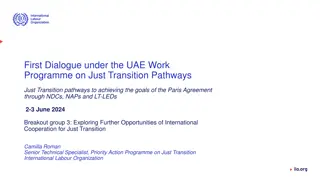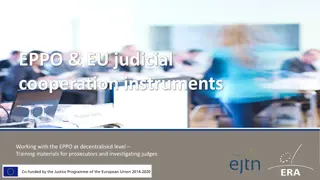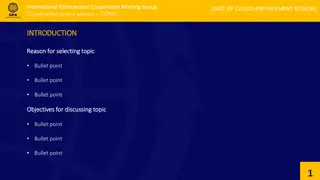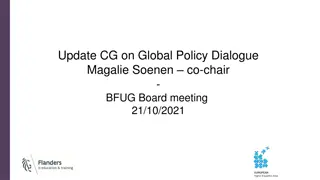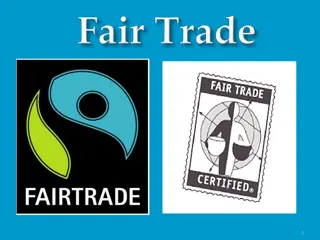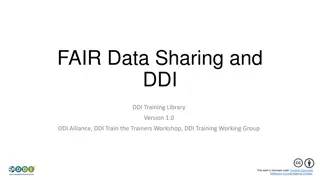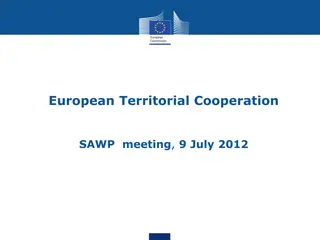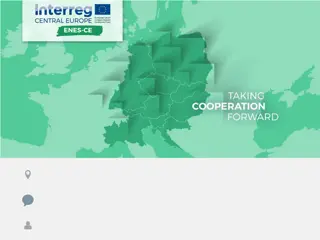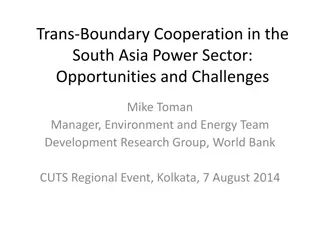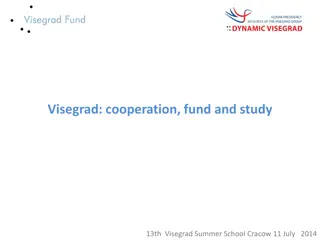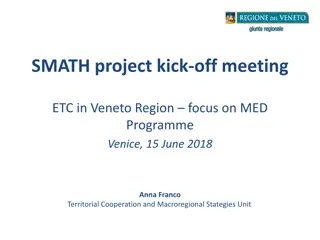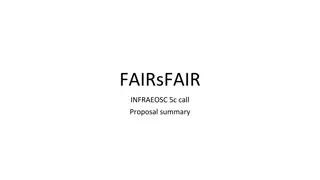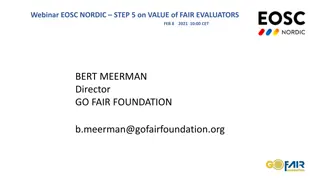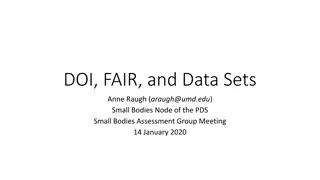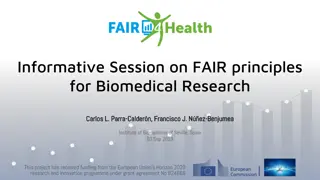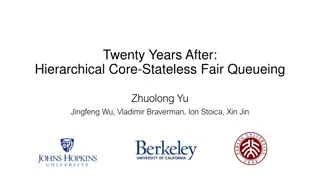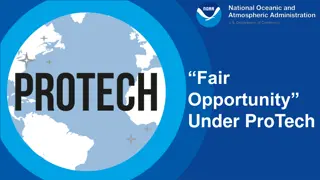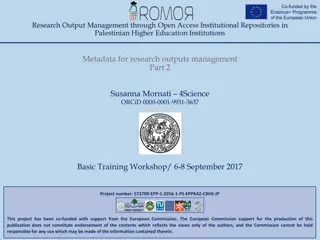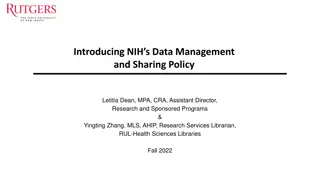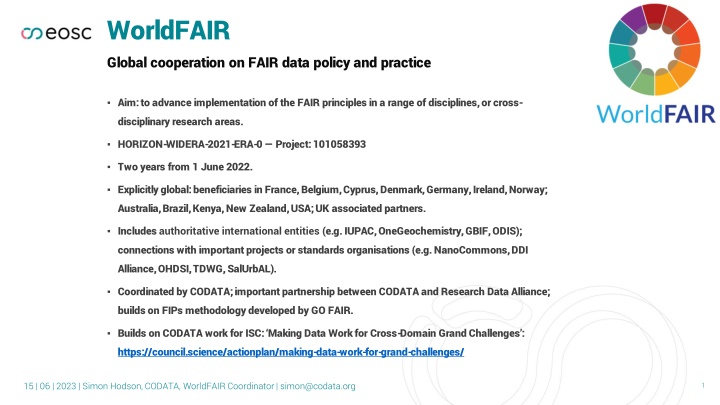
Advancing Global Cooperation on FAIR Data Policy
The WorldFAIR project aims to advance the implementation of FAIR principles across various disciplines and interdisciplinary research areas. It involves an international consortium with partners from different countries and authoritative entities. The focus is on developing interoperability frameworks for data sharing and collaboration, emphasizing the importance of data interoperability and integration. Case studies in chemistry, geochemistry, social surveys, population health, urban health, biodiversity, ocean science, disaster risk reduction, and cultural heritage illustrate the practical applications of FAIR principles. The project's methodology involves working groups, case studies, recommendations, and assessments to strengthen data sharing practices globally.
Download Presentation

Please find below an Image/Link to download the presentation.
The content on the website is provided AS IS for your information and personal use only. It may not be sold, licensed, or shared on other websites without obtaining consent from the author. If you encounter any issues during the download, it is possible that the publisher has removed the file from their server.
You are allowed to download the files provided on this website for personal or commercial use, subject to the condition that they are used lawfully. All files are the property of their respective owners.
The content on the website is provided AS IS for your information and personal use only. It may not be sold, licensed, or shared on other websites without obtaining consent from the author.
E N D
Presentation Transcript
WorldFAIR Global cooperation on FAIR data policy and practice Aim: to advance implementation of the FAIR principles in a range of disciplines, or cross- disciplinary research areas. HORIZON-WIDERA-2021-ERA-0 Project: 101058393 Two years from 1 June 2022. Explicitly global: beneficiaries in France, Belgium, Cyprus, Denmark, Germany, Ireland, Norway; Australia, Brazil, Kenya, New Zealand, USA; UK associated partners. Includes authoritative international entities (e.g. IUPAC, OneGeochemistry, GBIF, ODIS); connections with important projects or standards organisations (e.g. NanoCommons, DDI Alliance, OHDSI, TDWG, SalUrbAL). Coordinated by CODATA; important partnership between CODATA and Research Data Alliance; builds on FIPs methodology developed by GO FAIR. Builds on CODATA work for ISC: Making Data Work for Cross-Domain Grand Challenges : https://council.science/actionplan/making-data-work-for-grand-challenges/ 15 | 06 | 2023 | Simon Hodson, CODATA, WorldFAIR Coordinator | simon@codata.org 1
WorldFAIR Objective Responding to Recommendation 4 of Turning FAIR into Reality Among the most important, but most challenging, recommendations of the Turning FAIR into Reality report, is R.4: Develop interoperability frameworks for FAIR sharing within disciplines and for interdisciplinary research: Research communities need to be supported to develop interoperability frameworks that define their practices for data sharing, data formats, metadata standards, tools and infrastructure. To support interdisciplinary research, these interoperability frameworks should be articulated in common ways and adopt global standards where relevant. Very strong focus on the I and the R of FAIR; particularly for data interoperability and combination. 3
WorldFAIR Case Studies Chemistry making IUPAC assets FAIR Nanomaterials applying NanoInchi and FAIR recommendations in Nanosafety. Geochemistry recommendations for FAIR in geochemistry, particularly vocabularies. Social Surveys Data data harmonisation between ESS and AussiESS. Population Health INSPIRE - Integration of population surveys with clinical and genomics data for COVID-19 research in eastern and southern Africa. Urban Health terminologies and making urban health data FAIR Biodiversity improving GBIF data model in collaboration with TDWG - GBIF (Global Biodiversity Information Facility) Agricultural Biodiversity pollinator data (KALRO, Embrapa, Meise, HiveTracks) Ocean Science Implementing FAIR in the ODIS (Ocean Data and Information System) for the UNESCO Oceans decade. Disaster Risk Reduction recommendations on making DRR data and terminologies FAIR, case studies in Africa and Pacific Islands Cultural Heritage recommendations on making cultural heritage data FAIR (particularly digital representation of heritage artefacts)
WorldFAIR Objectives and Methodology WorldFAIR WG Case Studies WorldFAIR WG Recommendations First FIPs Second FIPs Domain-Sensitive FAIR Assessment Arrows indicate input, work informs CDIF CDIF
WorldFAIR Deliverables and Impacts Objectives, deliverables and impacts 1. To advance implementation of the FAIR principles and to improve interoperability and reusability of data and metadata within and across a number of research disciplines. Testing and refining the FIPs approach, second FIPs and report due 31 March 2024. Cross Domain Interoperability Framework, due 31 May 2024. Recommendations for Domain Sensitive FAIR Assessment, due 31 May 2024. 2. Each Case Study will develop an interoperability framework for their discipline or interdisciplinary research area. Recommendations on FAIR implementation from 11 Case Studies. 3. Strengthen international cooperation around FAIR and to connect diverse activities across disciplines and geographies. Partners from around the world; role of CODATA and RDA; role of authoritative organisations; links to international standards organisations. 4. Main impact: advancing FAIR practice in each of these areas. Measure is adoption. Second FIP will also measure progress in the project lifetime and intentions beyond the project. 6
WorldFAIR Contributions to EOSC SRIA Interoperability, use of standards, engagement with communities Case Study Recommendations and CDIF will enhance and add detail to the EOSC Interoperability Framework. (8.6.2.1. Standards and Tools, p.176) Standards-based approach: CDIF will provide recommendations on standards to be used to enhance interoperability and combinability; international and engaged with research communities. (5.7.2. Gaps, p.112) Engagement with of research communities: empowerment and facilitation of research communities to develop FAIR practices and Interoperability Frameworks. FIPs are an important tool for this. (5.7.2. Gaps, p.112) Interoperability for data combination: CDIF will propose good practices for a range of interoperability concerns, including semantics, to improve harmonization of practices across disciplines. (5.7.2. Gaps, p.113) 7
Dependencies and Collaboration WorldFAIR No critical dependencies. Lots of collaborations with European and International organisations, initiatives and projects. Two years is not a long time in the development of standards and their implementation. WorldFAIR is contributing to development of standards and approaches which will continue after the project (IUPAC, GBIF, ODIS, DDI etc). Collaboration and cross-fertilization with FAIR Impact, RDA Tiger, EOSC Future Science Project 9 (important example of use of DDI-CDI). Important contribution of GO FAIR through the FIPs methodology and infrastructure. 8
WorldFAIR Vision Some observations for EOSC Global and international collaboration is essential to the success of EOSC. Need a shift from a bibliographic to an engineering approach to data stewardship, from the file level to the datum level, at least for high value data where interoperability and combination is essential. Need to enable research data infrastructures to be able to do this. This is how we reduce the cost of data wrangling (cf. PWC report). Two important use cases and drivers for this are interdisciplinary grand challenge research and fine-grained management of data access. Arguments and recommendation presented in the WorldFAIR Policy Brief https://doi.org/10.5281/zenodo.7853170 Need to enable research communities. Priority should be in assisting them with developing and implementing FAIR practices. The FAIR Implementation Profiles horse should come before the FAIR assessment cart. Actively seeking to expand and sustain the WorldFAIR approach. Adding more petals with third party funding. Pursuing opportunities to increase and sustain resource for coordination. 9


